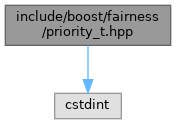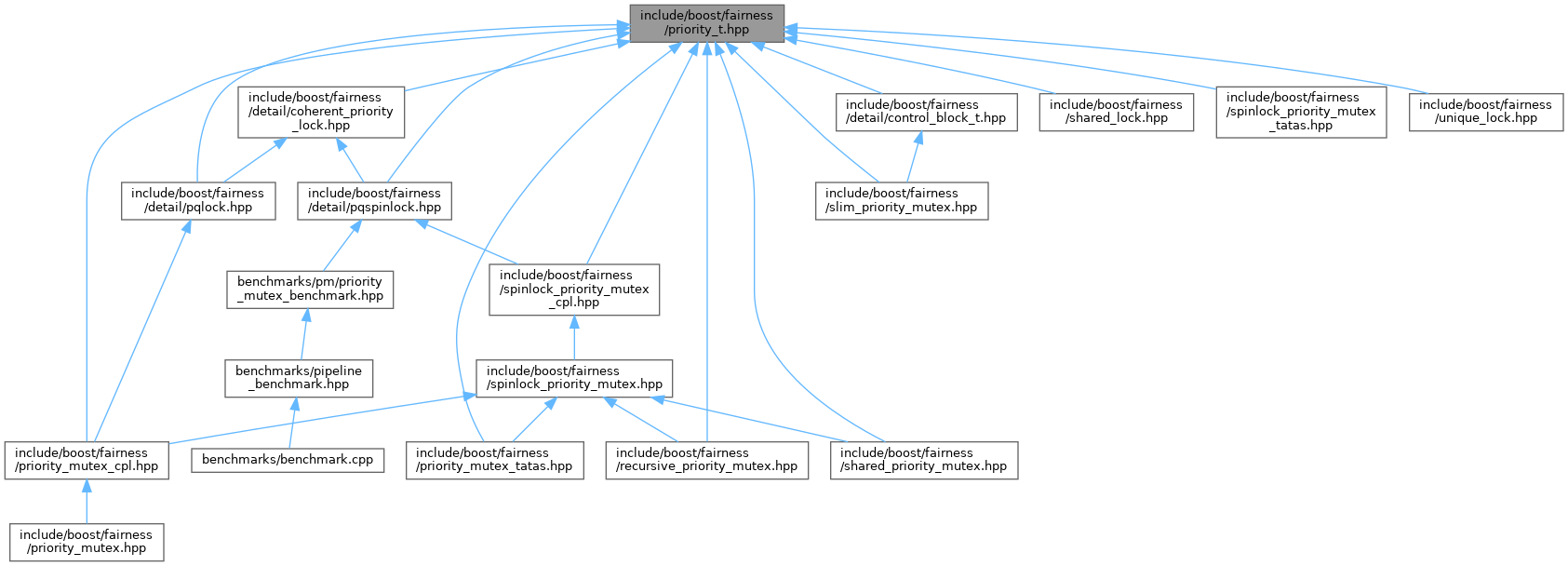 |
fairness
v1.0.0
A collection of advanced syncronization mechanisms.
|
 |
fairness
v1.0.0
A collection of advanced syncronization mechanisms.
|
Alias the type Priority_t. Priority_t is the type of priorities that are used by the priority_mutexes. More...
#include <cstdint>

Go to the source code of this file.
Namespaces | |
| namespace | boost |
| namespace | boost::fairness |
Macros | |
| #define | BOOST_FAIRNESS_INVALID_PRIORITY Priority_t(-1) |
| A number indicating an invalid priority which is not usable by the mutexes. | |
| #define | BOOST_FAIRNESS_MAXIMUM_PRIORITY Priority_t(-1) |
| Priorities are indexes in an array, that means that if I define a priority_mutex<BOOST_FAIRNESS_MAXIMUM_PRIORITY> m; we can call m.lock(p) with a p up to BOOST_FAIRNESS_MAXIMUM_PRIORITY - 1; this means that a priority to be valid has to be in the range [BOOST_FAIRNESS_MINIMUM_PRIORITY, BOOST_FAIRNESS_MAXIMUM_PRIORITY) | |
| #define | BOOST_FAIRNESS_MINIMUM_PRIORITY 0 |
| Priorities are indexes in an array, that means that if I define a priority_mutex<BOOST_FAIRNESS_MAXIMUM_PRIORITY> m; we can call m.lock(p) with a p up to BOOST_FAIRNESS_MAXIMUM_PRIORITY - 1; this means that a priority to be valid has to be in the range [BOOST_FAIRNESS_MINIMUM_PRIORITY, BOOST_FAIRNESS_MAXIMUM_PRIORITY) | |
Typedefs | |
| using | boost::fairness::Priority_t = uint8_t |
Functions | |
| bool | boost::fairness::is_valid_priority (Priority_t const p) |
| allows you to verify that an input priority is valid. Has to be in the range [BOOST_FAIRNESS_MINIMUM_PRIORITY, BOOST_FAIRNESS_MAXIMUM_PRIORITY). | |
Alias the type Priority_t. Priority_t is the type of priorities that are used by the priority_mutexes.
| #define BOOST_FAIRNESS_INVALID_PRIORITY Priority_t(-1) |
A number indicating an invalid priority which is not usable by the mutexes.
| #define BOOST_FAIRNESS_MAXIMUM_PRIORITY Priority_t(-1) |
Priorities are indexes in an array, that means that if I define a priority_mutex<BOOST_FAIRNESS_MAXIMUM_PRIORITY> m; we can call m.lock(p) with a p up to BOOST_FAIRNESS_MAXIMUM_PRIORITY - 1; this means that a priority to be valid has to be in the range [BOOST_FAIRNESS_MINIMUM_PRIORITY, BOOST_FAIRNESS_MAXIMUM_PRIORITY)
| #define BOOST_FAIRNESS_MINIMUM_PRIORITY 0 |
Priorities are indexes in an array, that means that if I define a priority_mutex<BOOST_FAIRNESS_MAXIMUM_PRIORITY> m; we can call m.lock(p) with a p up to BOOST_FAIRNESS_MAXIMUM_PRIORITY - 1; this means that a priority to be valid has to be in the range [BOOST_FAIRNESS_MINIMUM_PRIORITY, BOOST_FAIRNESS_MAXIMUM_PRIORITY)